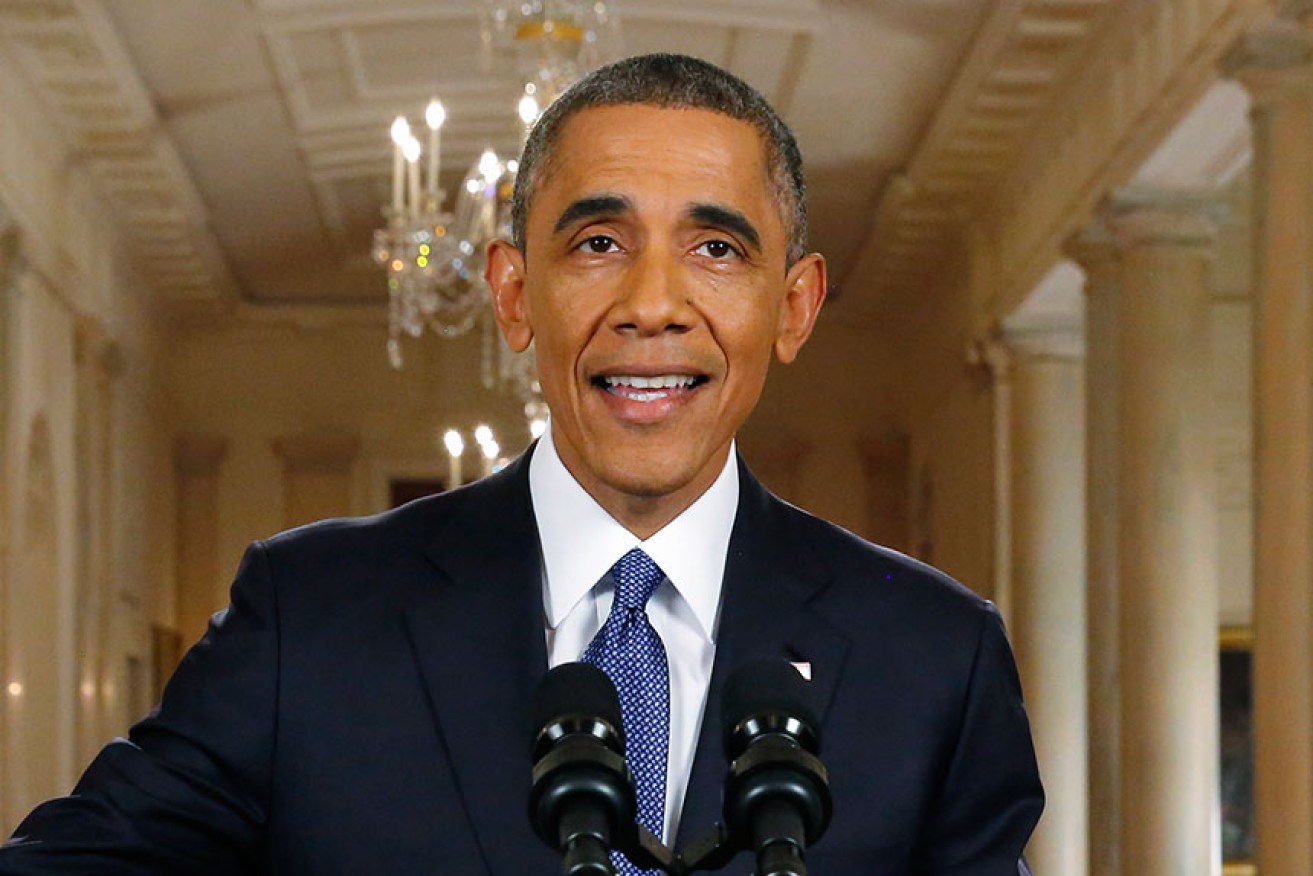US unveils immigration reforms


US President Barack Obama has moved to halt deportations for nearly 5 million undocumented immigrants, defying congressional Republicans who call his unilateral action an affront to the constitutional separation of powers.
Obama’s actions reversed his own statements that he did not have the power to make such sweeping changes without congress.
• Bishop chides Obama
• Obama inspires uni students in G20 speech
But aides said he had since learned he does have the authority, and that the refusal of the Republican-controlled House of Representatives to take up a bipartisan overhaul passed by the Senate left him no choice but to act unilaterally.
“To those members of congress who question my authority to make our immigration system work better, or question the wisdom of me acting where congress has failed, I have one answer,” Obama said during a prime-time statement from the White House East Room.
“Pass a bill.”
Obama’s actions will suspend the threat of deportation for millions, including about 4.1 million who will be temporarily protected and allowed to apply for work permits provided they are parents, pass a background check and pay fees, or are one of 270,000 brought to the country illegally as children.
At the same time, Obama announced plans to enhance security at the border and to shift focus inside the US away from all undocumented immigrants to criminals.
“What I’m describing is accountability, a common-sense, middle-ground approach,” Obama said.
“If you meet the criteria, you can come out of the shadows and get right with the law. If you’re a criminal, you’ll be deported.”
Sweeping change
His moves were the most sweeping change in immigration policy arguably since congress and Ronald Reagan agreed to changes in the 1980s.
Since then, there’s been a wave of immigration into the US, legal and undocumented, that has changed the culture, divided the country and defied political solution.
Today there are as many as 13 million unauthorised immigrants in the US.
Neither party believes it possible to deport them en masse, although many Republicans favour making it harder for them to continue working in the United States, which they argue could pressure them to leave on their own.
Other legislative proposals have called for them to return home and reapply for authorised immigration.
Obama’s moves did not settle the political debate – and might have inflamed it.
“Instead of working together to fix our broken immigration system, the president says he’s acting on his own. That’s just not how our democracy works,” said Republican House Speaker John Boehner.
“The president has said before that he’s ‘not king’ and he’s ‘not an emperor,’ but he’s sure acting like one. And he’s doing it a time when the American people want nothing more than for us to work together.”
By acting on his own, Obama’s executive order could create uncertainty for immigrants because it is temporary and subject to the results of the 2016 presidential election.
The next president could maintain the program or end it immediately with the same stroke of a pen as Obama.
“We can’t commit a future administration,” acknowledged a senior administration official who spoke on condition of anonymity as a matter of policy.
That sets up the 2016 election as a referendum on Obama’s decision, one in which candidates will be asked to either promise they will continue the policy or end it.
If they say they will end it, they will be asked to say whether they would actually start deporting the millions of people and how they would do it.
Administration officials expected that a president from either party would be unlikely to take away benefits that already have been granted.








